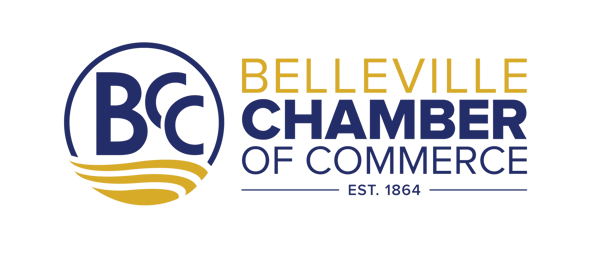Chamber News
Stay informed and discover the latest happenings in Belleville, Ontario with the Belleville Chamber of Commerce News.

The COVID-19 pandemic is having a tremendous impact on our businesses, our communities, our friends and our families. We are all feeling anxious and worried about the future.
Roadmap to Recovery
In the middle of a once-in-a-century pandemic, it is difficult for Canadians, their families, businesses and governments to look beyond confronting the immediate effects of COVID-19. While Canadians continue to focus on supporting each other today, we must also start looking over the horizon to the post-COVID-19 world to start planning how our country and economy can emerge stronger.
Recovery starts with resiliency. Supporting business and employees through the COVID-19 pandemic is helping to ensure they will be able propel our economic recovery.
While no one can predict with any certainty the economic, political and cultural changes this crisis will have on Canada and the rest of the world, we know these changes will be significant. The high level of collaboration among governments, businesses and civil society managing this pandemic should give Canadians confidence about our collective ability to deal with the long-lasting changes it will bring.
Here are some of the policy areas our political leaders must start considering to help ensure a sharp and lasting recovery.
Getting Canadians Back to Work
Canada’s workforce will not be the same when it comes time for recovery. In the span of one month, we went from one of the tightest job markets in history to over one million job losses. Unemployment may not return to pre-crisis levels at any point soon. Available jobs and the skills required will shift. Employers might increasingly look to automation to maintain operations during future crises and reduce risk. Canadians will need reskilling, upskilling and skills training programs to get them back to work. Education and training will also change, including more online learning and durable skills, with a focus on both work-integrated and lifelong learning. Ensuring all Canadians have opportunities to participate in the recovery will be essential for inclusive growth and widespread job creation.
Keeping Supply Chains Moving
Getting business operations up and running after a prolonged shutdown is extremely challenging. The rollout of essential services rules across the country has created a patchwork that prevents the continuation of many of the critical functions that service businesses and consumers. Most industries will need to reactivate their entire supply chain, where the weakest point in the chain will determine the success of a return to economic activity. Given the all-consuming nature of COVID-19, companies cannot afford to accommodate additional disruptions caused by regulatory gridlock and interprovincial trade barriers.
Managing Debt and Deficits
Canada will enter recovery with substantial new public and private debt. Federal and provincial governments used ample fiscal stimulus in an unprecedented health crisis, and further support may be necessary to avoid a prolonged economic downturn. Personal and private sector debt is also going to expand as households struggle to make payments and firms borrow to preserve their operations. Canada will have to walk a fiscal tightrope between reducing debt and deficits and maintaining a competitive tax system that encourages business investment and economic growth.
Navigating Global Fragmentation
The reversal of decades of economic globalization and international supply chains will create challenges for a trading nation like Canada. International trade patterns and global capital flows will shift as the pandemic disrupts the global economy. The pull of protectionist policies will grow as countries look inwards to recover from COVID-19, and barriers erected during the crisis could be slow to come down. Restructuring will take place in international tourism and transportation sectors, and impacts will linger for attracting international students. Canadians will have to reconcile our tradition of internationalism with a dramatically new global environment.
Adopting Technology and Innovation
The pandemic will change how we live, how we work and how we use technology. A crisis of this scale will undoubtedly alter consumer preferences and workplace norms. Canadians have suddenly been forced to work remotely, conducting virtual meetings and adopting online shopping and e-learning on a massive scale. An increasingly digital economy will require major investments in sophisticated networks, cybersecurity and electronics. It will also force businesses to adopt new technologies and business models to interact with customers, clients and employees.
Ensuring a Resilient Resource Sector
Canadian energy companies are in uncharted territory. Plunging oil prices have compounded the impact of the pandemic on the sector. The crisis has also demonstrated the importance of energy security as an essential service that not only powers our economy, but also our health systems. With the right supports, Canada can gain market share by innovating to create less emission intensive oil and gas products, provide billions in urgently needed government revenues and drive investment in renewable clean technologies. Trade policy and infrastructure are crucial to ensuring our resource sector thrives in a different global economy and takes advantage of the fourth industrial revolution. Canada’s abundance of natural resources, including energy, minerals, agriculture, forestry and fishing will be a strong competitive advantage as our economy recovers.
Planning for Small and Medium Business Continuity
Emergencies, like pandemics, natural disasters and cyber attacks, pose unique challenges for small- and medium-sized businesses. Most will not recover at the same pace as larger businesses and many will not survive the crisis. SMEs will need substantial tools and resources to help them maintain operations and adapt to a different economy. They will also require help to prepare to weather the next crisis, including advice on legal/human resource issues, cash management, maintaining operations, cybersecurity and adopting business models with less physical presence (e.g., remote working and e-commerce).
Strengthening Our Public Health Infrastructure
A lasting implication of the pandemic is that resilient and efficient healthcare systems will become an even greater competitive advantage for nations. Governments will need to rethink the speed and agility with which they need to react to make public health decisions and provide financial relief to individuals and businesses. Doing so will involve revisiting policies on critical healthcare infrastructure, strategic reserves of key supplies and the need to ensure domestic production facilities for critical medical equipment. It will also include redesigning public sector procurement and the distribution of essential equipment for times of crisis.
Rethinking Government’s Role and Priorities
There is no more fundamental role for government than protecting society in times of crisis. Wars, pandemics and serious recessions inevitably require increased government involvement in the economy and in society as a whole. However, once the crisis has passed, both the needs of society and the tools used to meet them may be profoundly different. The COVID-19 crisis demonstrates that, given the opportunity, the private sector will rise to the challenge and respond to changing conditions with the speed and flexibility that governments lack. As the government considers how to build a more secure future for Canadians, it must give priority to the economic fundamentals needed for growth and opportunity. Our goal should not be to return to the uncompetitive business conditions before the crisis. Now more than ever, we need to encourage entrepreneurship and investment, not just to undo the damage inflicted by COVID-19, but also to achieve Canada’s economic potential.
Check out our member directory to find local business that can help supply you with the products and services you need now and in the future.












.jpg)
.jpg)
.jpg)
.jpg)























